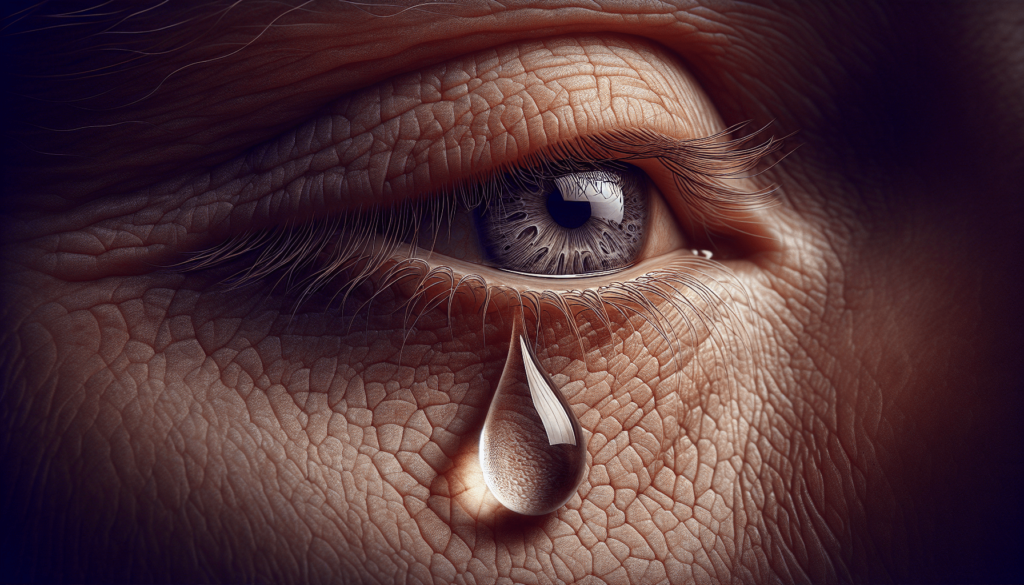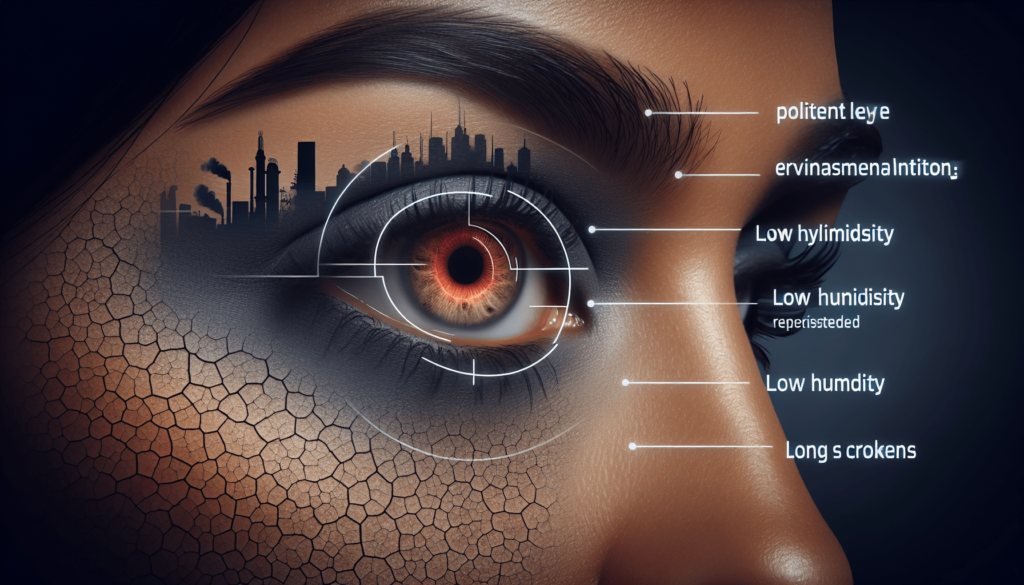Welcome to an informative article exploring the question: “Can aging cause dry eyes?” As we get older, we may start to notice changes in our eye health, including the common issue of dry eyes. Understanding the factors that contribute to dry eyes in later years can help us better manage and prevent this discomfort. Let’s dive into the reasons why aging may lead to dry eyes and learn some tips to keep our eyes healthy and hydrated.
Can Aging Cause Dry Eyes?
Have you been experiencing dry eyes more frequently as you get older? Are you wondering if aging could be the cause of this discomfort? In this article, we will explore the relationship between aging and dry eyes.
Understanding Dry Eyes
Dry eyes occur when your eyes do not produce enough tears or the tears evaporate too quickly. This can lead to irritation, redness, and a feeling of grittiness in your eyes. There are several factors that can contribute to dry eyes, including environmental conditions, medication side effects, and underlying health conditions.
Symptoms of Dry Eyes
Some common symptoms of dry eyes include:
- a stinging or burning sensation
- sensitivity to light
- blurry vision
- difficulty wearing contact lenses
If you are experiencing these symptoms, it is important to consult with an eye doctor to determine the underlying cause of your dry eyes.
Aging and Tear Production
As we age, our bodies undergo a variety of changes, including a decrease in tear production. This can lead to an increased risk of developing dry eyes. The aging process can affect the composition of tears, causing them to evaporate more quickly and leading to symptoms of dryness and discomfort.
Changes in Tear Film
The tear film is made up of three layers:
- Lipid (oil) layer
- Aqueous (water) layer
- Mucin (mucus) layer
As we age, changes in the lipid and mucin layers can occur, affecting the stability of the tear film and contributing to dry eyes.
Hormonal Changes
Hormonal changes that occur as we age can also impact tear production. Women going through menopause may experience a decrease in estrogen levels, which can lead to dry eyes. Hormonal fluctuations can affect the quality and quantity of tears, making the eyes more susceptible to dryness.
Menopause and Dry Eyes
During menopause, many women may experience symptoms of dry eyes, such as itching, burning, and redness. Hormone replacement therapy may help alleviate these symptoms by restoring hormonal balance and promoting tear production.
Medications and Dry Eyes
As we age, it is common to be taking multiple medications to manage various health conditions. Some medications can have side effects that contribute to dry eyes. Antihistamines, decongestants, antidepressants, and diuretics are just a few examples of medications that can cause dry eyes as a side effect.
Tips for Managing Dry Eyes Caused by Medications
If you are experiencing dry eyes as a side effect of medication, consider the following tips to help manage your symptoms:
- Use artificial tears to lubricate the eyes
- Avoid medications that exacerbate dry eyes whenever possible
- Consult with your healthcare provider to discuss alternative treatment options
Environmental Factors
As we age, our eyes become more sensitive to environmental factors that can contribute to dry eyes. Dry, windy weather, air conditioning, and indoor heating can all exacerbate symptoms of dry eyes. Additionally, spending long hours in front of a computer or digital device can cause eye strain and dryness.
Tips for Managing Dry Eyes in Different Environments
To manage dry eyes caused by environmental factors, consider the following tips:
- Use a humidifier in your home or office to add moisture to the air
- Take frequent breaks when using a computer or digital device to reduce eye strain
- Wear wrap-around sunglasses to protect your eyes from wind and dust when outdoors
Underlying Health Conditions
Certain underlying health conditions can increase the risk of developing dry eyes as we age. Autoimmune diseases, such as Sjögren’s syndrome and rheumatoid arthritis, can affect the glands that produce tears, leading to reduced tear production and dry eyes. Diabetes, thyroid disorders, and vitamin deficiencies can also contribute to dry eyes.
Managing Dry Eyes with Underlying Health Conditions
If you have an underlying health condition that is contributing to your dry eyes, it is important to work with your healthcare provider to manage your symptoms effectively. Treatment may include medications, lifestyle changes, and regular eye exams to monitor your eye health.
Eye Care Tips for Aging Eyes
Taking care of your eye health as you age is essential for maintaining good vision and preventing dry eyes. Here are some tips to help keep your eyes healthy as you get older:
Regular Eye Exams
Schedule regular eye exams with an eye doctor to monitor your eye health and address any vision changes or eye conditions. Early detection and treatment of eye diseases can help prevent complications and maintain good vision.
Proper Nutrition
Eat a diet rich in fruits, vegetables, and omega-3 fatty acids to support eye health. Foods like salmon, walnuts, and dark leafy greens contain nutrients that are beneficial for the eyes and can help prevent dry eyes.
Stay Hydrated
Drink plenty of water throughout the day to stay hydrated and support tear production. Dehydration can make dry eyes worse, so it is important to stay well-hydrated to maintain eye health.
Protect Your Eyes
Wear sunglasses with UV protection when outdoors to protect your eyes from harmful UV rays. UV exposure can increase the risk of developing cataracts, macular degeneration, and other eye conditions that can affect vision.
Practice Good Eye Hygiene
Avoid rubbing your eyes, as this can worsen dryness and irritate the eyes. Wash your hands frequently to prevent the spread of germs that can cause eye infections. Use a clean towel to gently pat your eyes dry after washing your face.
Conclusion
In conclusion, aging can be a contributing factor to the development of dry eyes. As we age, changes in tear production, hormonal fluctuations, medications, environmental factors, and underlying health conditions can all affect the health of our eyes. By understanding the relationship between aging and dry eyes and taking proactive steps to care for our eye health, we can prevent and manage symptoms of dry eyes effectively. If you are experiencing persistent dry eyes, consult with an eye doctor to determine the underlying cause and develop a treatment plan tailored to your unique needs.


